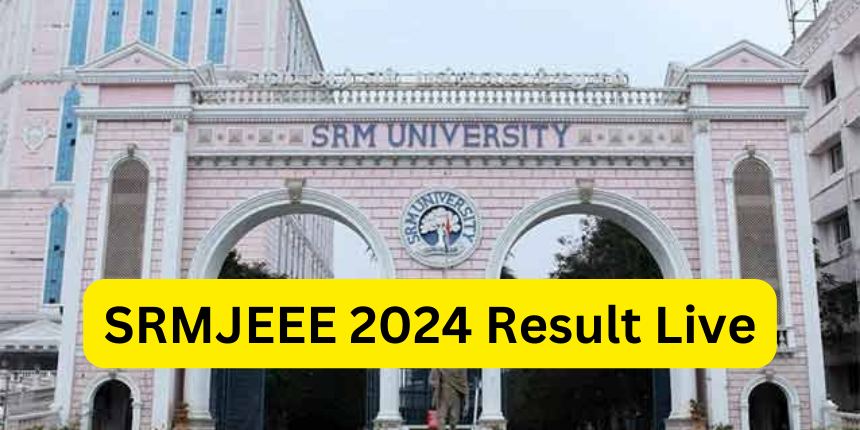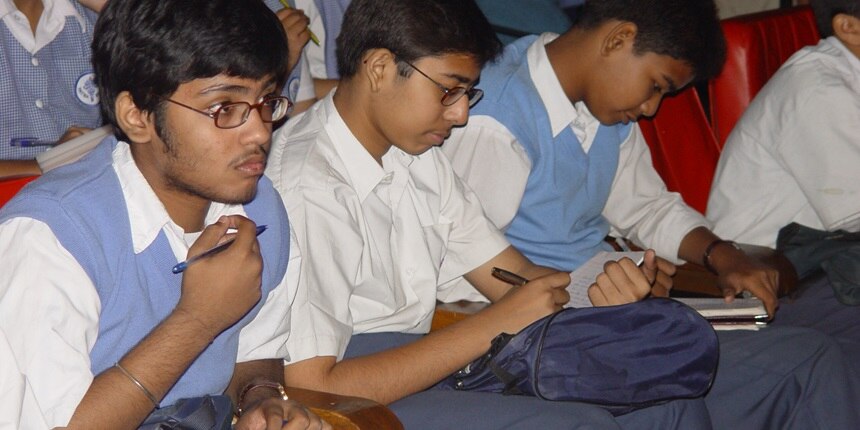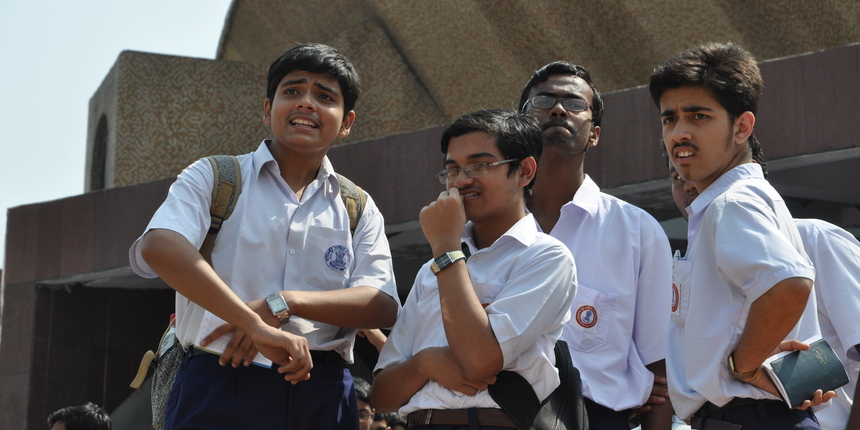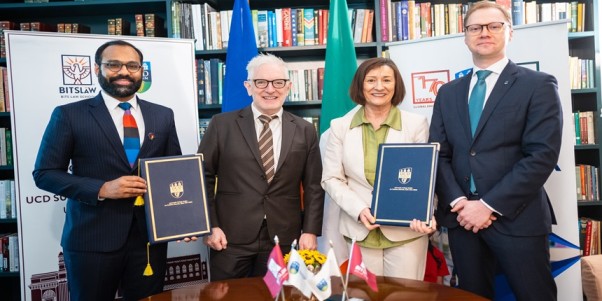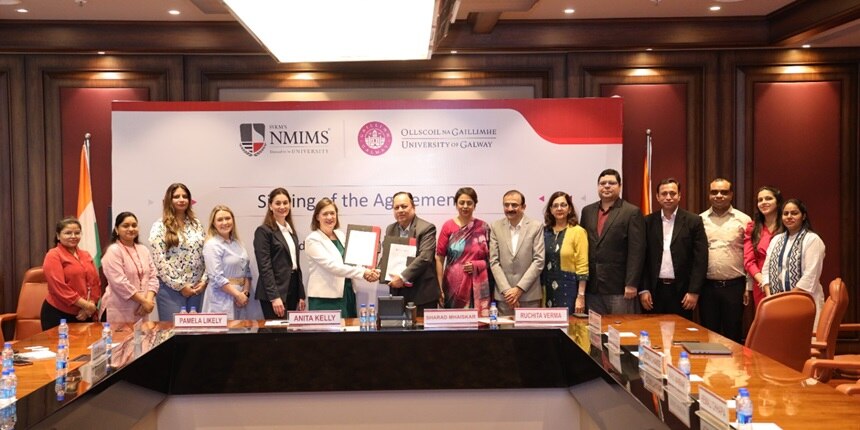Jammu & Kashmir: New reservation policy leaves 69% youth in fray for 36% college seats, job posts
J&K new reservation policy for SC, ST, OBCs has left majority of the UT’s youths competing for fewer government college seats, job posts, they said.
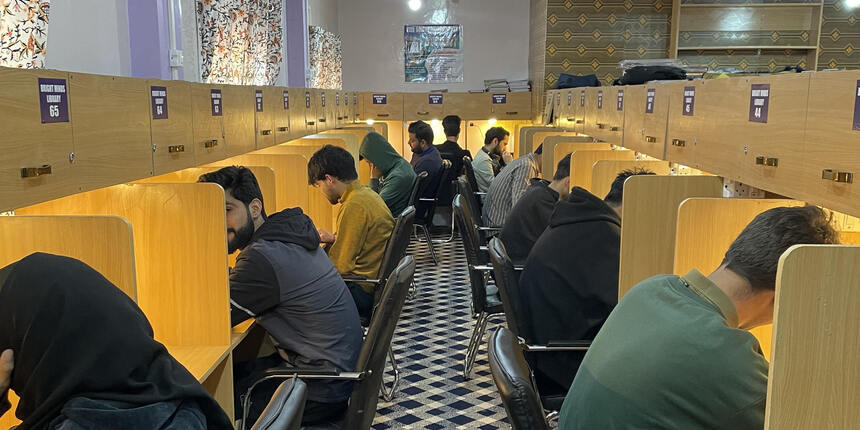 NEET UG, Job aspirants preparing for exams at a private library in Srinagar (Image: Mohammad Aatif Ammad Kanth)
NEET UG, Job aspirants preparing for exams at a private library in Srinagar (Image: Mohammad Aatif Ammad Kanth)Team Careers360 | April 3, 2024 | 12:22 PM IST
By Mohammad Aatif Ammad Kanth
SRINAGAR, JAMMU AND KASHMIR: Tabish Mir, from Shopian town in South Kashmir, resides in a hostel in Srinagar’s Rajbagh area and spends around 16 hours a day studying at a private library. He is preparing for the massively competitive admission exam for undergraduate medical education, the National Eligibility cum Entrance Test (NEET UG).
Last year, the first time Mir wrote NEET, he achieved a score of 552 in the exam. It wasn’t enough to secure Mir, a member of the “general category” of applicants, a seat in J-K medical colleges. The NEET cut-off for J&K MBBS seats last year was over 600 for general-category candidates. Mir is trying again but despite the extra year of preparation, his chances have actually dwindled instead of improving. The reason is the union territory’s new reservation policy.
Like other states, J&K had a reservation policy allocating around 50-55% of posts or seats in government jobs, promotions and educational institutions to historically-marginalised groups such as the Scheduled Castes (SC), Scheduled Tribes (ST), Other Backward Classes (OBC), and special categories specific to J&K, like Rural Backward Areas (RBA) and children of state police personnel, commonly known as JKPM. The remaining 45-50% seats were unreserved and meant for the rest of the population, the “general category”.
As per new reservation policy, notified on March 15, the Jammu and Kashmir administration approved another 10% reservation for newly-included tribes, including Paharis, in the list of Schedule Tribes (ST). The Council also approved the addition of 15 new castes in the list of OBCs in Jammu and Kashmir and enhancement of reservation in favour of OBCs to 8%.
The increases have come without a corresponding increase in the number of seats leaving general-category candidates – the majority of the UT’s population – competing for a much slimmer slice of pie.
Also read IIT Kanpur violates reservation policy again; 14 departments do not have ST faculty: APPSC
Jammu and Kashmir: New SC, ST, OBC reservation policy
Under the old reservation policy, out of 972 MBBS seats reserved for residents of J&K – excluding the 15% All India quota and 41 seats reserved for UT of Ladakh – 445 were unreserved general-category seats, while the rest were designated for candidates in various reserved categories.
Even before the expansion of reservation, there was a general perception among the J-K public that the percentage of seats for general quota aspirants was inadequate as the population of J&K falling within the general quota comprised 69% as per the Census 2011. The new policy effectively extends reservation to beyond 60%.
The additional 10% reservation for STs and enhancement of reservation in favour of OBCs to 8% have both been carved out of the open-merit segment, shrinking the total open merit or unreserved segment to around 36% from the previous 45-50%.
Below are the slabs of vertical reservation, applied to the total number of seats.
J&K: Vertical reservation for SC, ST, OBCs and others
Category | Reservation % |
Scheduled Castes | 8 |
Scheduled Tribes | 20 |
Other Backward Classes | 8 |
Residents of Areas Adjoining Line of Actual Control / International Border | 4 |
Residents of Backward Areas | 10 |
Economically Weaker Sections | 10 |
Plus, there is another 10% horizontal reservation – quotas within the vertical reservation categories as well as within the open seats or general category.
In education, the 10% horizontal reservation breaks up into the following slabs:
- Persons with disabilities: 4%
- Children of defence personnel: 3%
- JKPM: 1%
- Candidates possessing outstanding proficiency in sports: 2%
In recruitment drives for government jobs, there’s horizontal reservation for ex-servicemen (6%) and persons with disabilities (4%). However, data shows that even before the new policy was introduced, government departments earmarked more posts to horizontal reservation from the open-category than existing policy mandated.
For instance, earlier this year, the UT finance department notified 972 accounts assistant posts; after applying vertical reservation, 486 of them were earmarked for the open category. However, when the selection list was announced, 72 of the 486 posts – nearly 15% – had gone to horizontal reservation. That left just 42.5% of the total number of posts for the largest section of the population to compete for.
The local population fears that similar post-allocation practices under the new reservation policy could push reservation as far as 70%.
Until last week, Mir was confident about securing one of the 445 seats available for his group, needing a NEET score only 60-70 marks higher than in his first attempt. However, he was shocked to learn that the government had reduced the quota for general category aspirants. This means that the number of open seats is now down from 445 to less than 350. This change will make admission in a J&K government medical college significantly more challenging for aspirants like Mir.
"This news has completely blindsided me,” said Mir angrily. “I was certain of my success this time. But upon learning about the new reservation policy, I'm utterly shocked. I find it impossible to concentrate on my studies now. With over 30,000 open-merit aspirants,….the competition has become incredibly tough. I was brought to tears when I heard the news.”
The administration claimed that the expansion of the Scheduled Tribes list in Jammu and Kashmir will not affect the existing reservation levels for ST communities listed earlier, such as Gujjars and Bakarwals. A government statement emphasised that these communities will retain their existing reservation benefits without any changes.
Also read ‘Reservation policy not followed’: Kerala HC directs IIM Kozhikode to admit OBC candidate in PhD
SC/ST population in Jammu and Kashmir
The announcement has puzzled even some of those likely to benefit from the change.
Baidaar Ahmed Gangayal, a NEET-UG aspirant belonging to one of the tribes newly included in the ST category, remarked: "This decision by the administration is absurd. Our tribal community makes up a minuscule fraction of the population of J&K. It's unreasonable to allocate us 20% reservation when we don't even account for 10% of the population."
As per Census 2011, STs constituted around 10% of J&K’s total population.
"I find it difficult to face my friends now who belong to the open merit category. They have been betrayed by the administration using us as a tool. It's solely a tactic to secure votes from our community, given our historical voting turnout," added Gangayal, referring to the 2024 Lok Sabha elections starting on April 19. J&K residents will vote in the first five of the seven-phase elections.
Condemning the policy, J&K Students’ Association (JKSA) said on social media that they intended to file a petition against the policy and called it as “disproportionate and unjust that undermines the merit-based approach that is essential for fostering equal opportunities and excellence ”
However, JKSA later announced via X that a delegation from their organisation would hold discussions with the J&K administration led by the Lieutenant Governor. Their objective is to present the collective concerns and recommendations gathered from the general public.
“We are not against the concept of ‘reservation’ per se, but the recent decision to increase the Scheduled Tribe (ST) quota by 10% and the Other Backward Classes (OBC) quota by 4% in Jammu and Kashmir, enhancing the total reservation to 70%, is blatantly arbitrary thereby violating Article 14 of the Constitution,” said Umer Jamal, national general secretary, JKSA. “When reservation is employed to disadvantage particular groups instead of empowering the marginalised, it poses a problem. The Supreme Court has also addressed the issue of the 50% cap on reservation in several rulings.”
Quota cap and merit
Back in 1962 the Supreme Court spoke of a 50% ceiling on reservations. Again in a 1992 nine-judge bench case, Indra Sawhney vs Union of India, the Supreme Court, while deciding on reservations for Other Backward Classes, emphasised a 50% cap on reservations. In cases such as the Maratha reservation in Maharashtra and the reservation laws in Chhattisgarh, Orissa, and Rajasthan, the courts have consistently struck down attempts to surpass that limit.
"The reservation policy represents a huge injustice to aspirants from the open merit category, and we strongly denounce it. We will establish a delegation to engage in discussions with the administration regarding the policy. If these discussions prove futile, we will resort to legal action," stated Nasir Khuehami, the national convenor of JKSA.
In its recent notification concerning admissions to government nursing and para-medical colleges, the Jammu and Kashmir Board of Professional Entrance Examinations (JKBOPEE) became the first entity to enforce the updated reservation policy of Jammu and Kashmir.
Aspirants across the valley expressed dissatisfaction and frustration with the implementation. Criticising the implementation, Aquib Mir, 28, a job aspirant from Anantnag stated, "The administration has initiated the policy's implementation. This is completely unjust for students like us who fall under the open merit quota. We feel exploited, and I believe this will lead to widespread unemployment among the open merit public."
Junaid Azim Mutto, the former mayor of Srinagar city, expressed indignation towards the policy and posted on X, "A significant injustice and an assault on merit in J&K — truly tragic!"
Mohammad Aatif Ammad Kanth is a Srinagar-based freelance journalist who writes on financial, economic and social issues.
Follow us for the latest education news on colleges and universities, admission, courses, exams, research, education policies, study abroad and more..
To get in touch, write to us at news@careers360.com.
